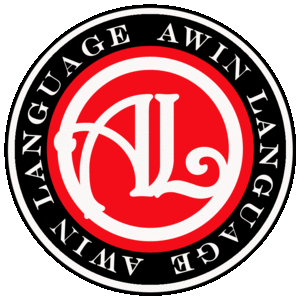- Gerund and Infinitive
|
(a)
I enjoy
music
(b)
I enjoy listening to music
(c)
I enjoy listening to music
|
S V O
I enjoy something. (something = the object
of the verb). The object of verb is usually a noun or pronoun, as in (a)
The object of a
verb can also be a gerund. A gerund is the –ing from of a verb. It is used as a noun.
In (b), listening is a gerund. It is the
object of the verb enjoy.
In (c), listening to music is a gerund
phrase.
|
|
(d)
I want an
apple
(e)
I want
to eat an apple
(f)
I want
to eat an apple
|
S V O
I want something.(something the object of
the verb).
In (d), the
object of the verb is a noun (a apple). The object of a verb can also be an
infinitive. An infinitive is to + the
simple form of a verb.
In (e), to eat is an infinitive. It is the
object of the verb want.
In (f), to eat an apple is an infinitive
phrase.
|
|
(g)
I enjoy going to the mall.
|
Some verbs (e.g.
, enjoy) are followed by gerund
|
|
(h)
Budi
wants to go to the mall
|
Some verbs (e.g.
, want) are followed by infinitive.
|
|
(i)
It began raining.
(j)
It began to rain.
|
Some verbs (e.g.
, began) are followed by either gerund and infinitive.
|
Explanation:
- The –ing form of a verb can be used as a present participle: example, I am listening to the teacher right now. (listening = a present participle, used in the present progressive).
- The –ing form of verb can be used as a gerund: example, I enjoy listening to music. (listening = a gerund, used as the object of the verb enjoy).
- VERBA + GERUND
Common Verbs Followed by Gerund
|
Enjoy
Finish
Stop
Quit
Mind
Postpone
Put off
Keep
Keep on
Consider
Think about
Discuss
Talk about
|
(a)
I enjoy working in my garden.
(b)
Andi finished studying at midnight.
(c)
It stopped raining a few minutes ago.
(d)
Anas quit smoking.
(e)
Would
you mind opening the window?
(f)
I postponed doing my homework.
(g)
I put off doing my homework.
(h)
Keep working. Don’t
stop.
(i)
Keep on working. Don’t
stop.
(j)
I’m considering going to Australia.
(k)
I’m thinking about going to Australia.
(l)
They discussed getting a new car.
(m)
They talked about getting a new car.
|
Gerund are used
as the object of the verbs in the list. The list also contains phrasal verbs
(e.g., put off) that are followed by gerunds.
These verbs are
not followed by infinitive. For example:
Incorrect:
I enjoy to work.
Andi finished to
study.
I’m thinking to
go to Australia.
|
|
(n) I considered
not going to class.
|
|
Negative form: not + gerund
|
- VERBA + INFINITIVE
|
(a)
Badol offered to lend me some money.
(b)
I’ve decided to buy a new house.
|
Some verbs are
followed by an infinitive: an infinitive = to + the simple form of a verbs.
|
|
(c) I’ve decided not to keep my old car
|
Negative form: not + infinitive
|
Common Verbs Followed by Infinitive
|
Want Expect Promise Appear (can’t) afford
Need Plan Offer Pretend (can’t) wait
Would like Intend Agree Forget
Would love Mean Refuse Learn (how)
Hope Decide Seen Try
|
- VERBA + GERUND OR INFINITIVE
|
(a)
It began
to rain
(b)
It began
raining
|
Some verbs are
followed by either an infinitive or a gerund. Usually there is no difference
in meaning. (a) and (b) have the same meaning.
|
Common Verbs Followed by Either a Gerund or an
Infinitive
|
Begin Continue Love Can’t stand
Start Like Hate
|
Compare: like and love can be followed by either a gerund
or an infinitive: example, I like going/to go to movies. I love playing/to play
chess.
Would like and would love are followed by
infinitives: examples, I would like to go to a movie tonight. I would love to
play a game of chess right now.
- PREPOSITION + GERUND
|
(a)
Kate
insisted on coming with us
(b)
We’re
excited about going to Ancol.
(c)
I
apologized for being late.
|
A preposition is
followed by a gerund, not an infinitive.
In (a):
preposition (on) + gerund (coming)
|
- MENGGUNAKAN BY DAN WITH UNTUK MENGEKSPRESIKAN BAGAIMANA SESUATU DIKERJAKAN
|
(a)
Pat
turned off the tape recorder by
pushing the top button.
|
By + a gerund is used to
express how something is done.
|
|
(b)
Ana goes
to work by bus.
(c)
Anji
stirred her coffee with a spoon
|
By or with followed by a noun is also used
to express how something is done.
|
By is Used Means of Transportation and Communication
|
By
Airplane
By boat
By car
By subway
By taxi
By train
By foot
By mail
By telephone
By fax
By air
By land
By sea
|
By chance
By choice
By mistake
By check
By hand (something
was made by a person)
|
With is Used for Instruments or Part of the Body
|
-
I cut
down the tree with an ax (by using an ax).
-
I swept
the floor with a broom
-
She
pointed to a spot on the map with her finger.
|
- GERUND IS USED AS SUBJECT; USING IT + INFINITIVE
|
(a)
Riding
horses is fun.
(b)
It is
fun to rude horses
|
(a) and (b) have
the same meaning. In (a): A gerund (riding) is the subject of the sentence.
Notice: the verb (is) is singular because a gerund is singular. In (b): the
word it is used as subject of the
sentence. The word it has the same
meaning as the infinitive phrase at the end of the sentence: it means to ride
horses.
|
|
(c)
Coming
to class on time is important
(d)
It is
important to come to class on time
|
|
- IT + INFINITIVE: USING FOR (SOMEONE)
|
(a)
You
should study hard.
(b)
It is
important for you to study hard.
(c)
Ana
should study hard.
(d)
It is
important for Ana to study hard.
(e)
We don’t
have to go to the meeting.
(f)
It isn’t
necessary for us to go to the
meeting.
(g)
A dog
can’t talk.
(h)
It is
impossible for a dog to talk
|
(a) and (b) have
a similar meaning.
Notice the
pattern in (b):
It is + adjective + for
(someone) + infinitive phrase
|
- INFINITIVE MENYATAKAN MAKSUD: MENGGUNAKAN IN ORDER TO
|
Why did you go to the post office?
(a)
I went
to the post office because I wanted to mail a letter.
(b)
I went
to the post office in order to mail
a letter.
(c)
I went
to the post office to mail a
letter.
|
In order to express
purpose.
In order to answer the
question ;Why?
Notice: in (c):
in order is frequently omitted. (a), (b), and (c) have the same meaning.
|
|
(d)
I went
to the post office for some
stamps.
(e)
I went
to the post office to buy some
stamps.
(f)
INCORRECT:
I went to the post office for to buy some stamps.
(g)
INCORRECT:
I went to the post office for buying some stamps.
|
For is also used to
express purpose, but it is a preposition and is followed by a noun phrase, as
in (d).
|
- MENGGUNAKAN INFINITIVE DENGAN TOO DAN ENOUGH
|
Too + Adjective + (for someone) + Infinitive
(a) A piano is
too heavy
to lift.
(b) That box is
too heavy for me
to lift.
(c) That box is
too heavy for bob to lift.
|
Infinitive often
follow expression with too.
Too comes in front of an
adjective.
In the speaker’s
mind, the use of too implies a
negative result.
COMPARE:
The box is too
heavy, I can’t lift it.
The box is very
heavy, but I can lift it.
|
|
Enough + Noun + infinitive
(d)
I don’t
have enough money to buy that car.
(e)
Did you
have enough time to finish the
test?
Adjective + Enough + Infinitive
(f)
Richy
isn’t old enough to go to school.
(g)
Are you
hungry enough to eat three
sandwiches?
|
Infinitive often
follow expressions with enough.
Enough comes in front of
a noun.
Enough follows an
adjective.
|
Explanation:
Enough can also follow a
noun: I don’t have money enough to
buy that car. In everyday English, however,
enough usually comes in front of a noun.











0 komentar:
Posting Komentar